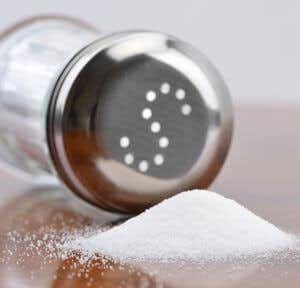
A famous American writer once said, “It ain’t what you don’t know that gets you into trouble. It’s what you know for sure that just ain’t so.”
Whether or not Mark Twain was the original author of that quote (a matter of some debate), it certainly pertains to many firmly-held beliefs in public health. It turns out that many of the axioms of prudent eating–such as eggs raising blood cholesterol or salt raising blood pressure–are more complicated than they appear at first blush.
A recent study on the role of salt (sodium chloride) in promoting high blood pressure ruffled feathers because it appears to contradict long-standing advice that we should all be cutting our salt intake to reduce our risk of heart attacks and strokes (Journal of the American Medical Association, May 4, 2011).
The investigators recruited more than 3,500 healthy adults from Belgium and other European countries. They used a very accurate way of assessing salt intake, analyzing 24-hour urinary sodium excretion. The study lasted eight years and the participants had blood pressure and urinary sodium measured again at the end of that time.
The researchers found that systolic blood pressure (the upper number in the 120/80 measurement) increased modestly as sodium increased, but diastolic blood pressure (the lower or second number) was unaffected. Statistical analysis showed no relationship between salt intake and a diagnosis of hypertension in these healthy individuals.
More surprisingly, though, the people who consumed the lowest amount of salt had the greatest risk of death from cardiovascular complications. The authors concluded that urging otherwise healthy individuals to cut back on salt to prevent high blood pressure or heart disease is not supported by the evidence.
This struck many as heresy. Having been told for decades that salt is poison, many people reacted with horror. Although the research was more carefully done than many previous investigations, CDC officials objected that the study was severely flawed. The Harvard School of Public Health posted a critique on its website.
Some of our readers were outraged. One scolded: “Your information about salt is really sending the wrong message. I am greatly disappointed. I read your column because usually you have very good reliable information. But this information could be extremely harmful to people’s health. I hope to see a retraction and soon.”
Other readers were frustrated. One responded: “This contradictory information drives us ordinary folks right up the wall. Can’t these people do a definitive study, all come to one conclusion, one truth and then state ‘OK, everybody, we can now provide set-in-stone information’ upon which we can rely?
“At least my sodium reduction hasn’t yet killed me–my body’s still warm.”
Science is unlikely to provide us with dictums that are set in stone. As more research is done, it changes our understanding of how things work.
The European study of sodium and cardiovascular complications should not be taken to apply to people with heart failure or those who are salt-sensitive. For such people, salt restriction remains essential. Not everybody else will benefit.

